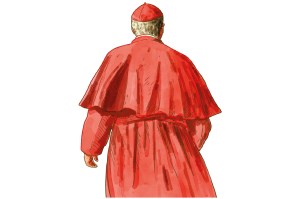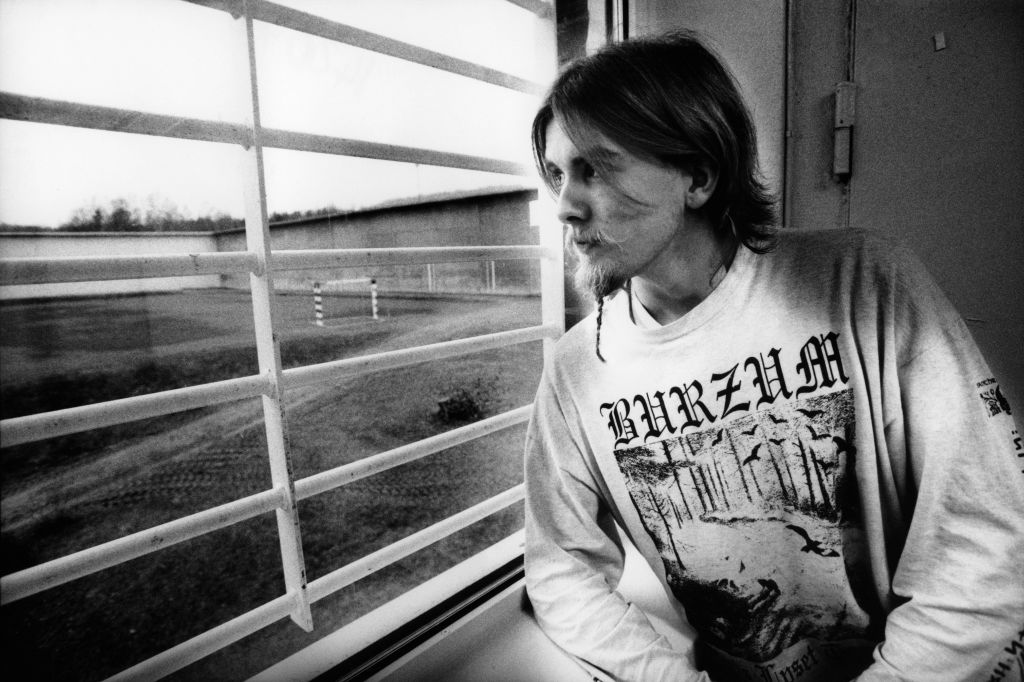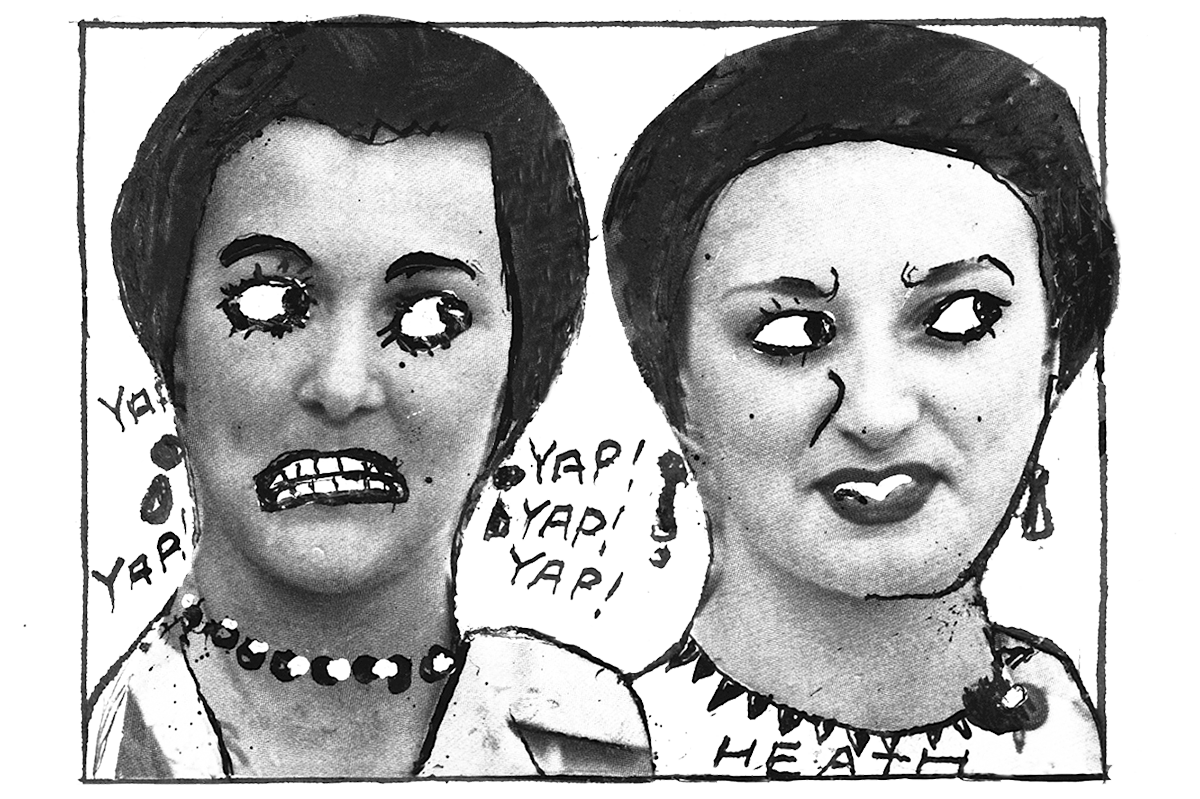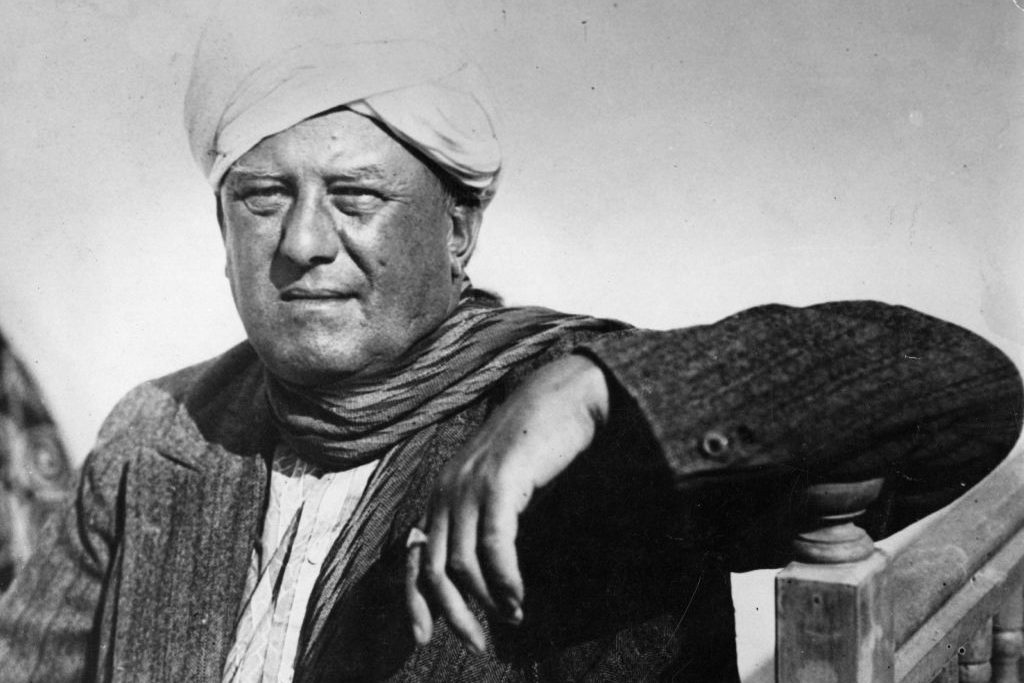At 9.47 a.m. on Easter Monday we heard the words “con profondo dolore” from a cardinal standing in the chapel of the Casa Santa Marta. Two hours earlier, Pope Francis “è tornato alla casa del Padre” – “had returned to the house of the Father.” Most people won’t have noticed a curious detail: the cardinal was speaking Italian with a pronounced Irish brogue.
Cardinal Kevin Farrell, the papal “Camerlengo,” was born in a Dublin suburb. Or, as a tabloid put it: “Interim Pope is a bloke called Kevin from Dublin.” That’s an exaggeration, but the Camerlengo does occupy center stage when the See of Peter falls vacant. He confirms that the Pope is dead. Traditionally, he would tap his head with a silver hammer, but now they use an electrocardiogram. Cardinal Farrell sealed Francis’s apartment; he’s organizing the funeral and conclave.
Not everyone is happy about this. Farrell, who has spent most of his career in the United States, is distrusted by many in the Church. He has been accused of lying about what he knew about the allegations against his friend, the recently deceased Theodore McCarrick. McCarrick was defrocked by Francis in 2019 after he was exposed as a serial predator of young men – an open secret in the Vatican and the American church for decades.
On Monday, Farrell stood in front of the sanctuary alongside the papal master of ceremonies, plus two of the most powerful men in the Vatican. They were Cardinal Pietro Parolin, the secretary of state, and Archbishop Edgar Peña Parra, the Pope’s chief of staff.
These three embody the problems that beset Francis’s papacy and which will cause huge dilemmas for his successor. They have all been accused of compromising truth for power. Their secretive operating style characterized the pontificate’s decision-making.
Francis was a charismatic pope loved by most of the world’s 1.4 billion Catholics, who make up 18 percent of the global population. He was particularly beloved by the poor for his rhetoric about the marginalized. But few of them grasp the scale of the crisis in the Church – and even fewer are aware that it was made worse by a pontiff whom the media insist on calling the “people’s pope.” His leadership was marked by favoritism and poor judgment.
The next Vicar of Christ will face challenges that dwarf those that confronted any incoming pope in living memory. The Church is mired in doctrinal confusion; its structures of government are fragmented; sexual scandals have been hushed up at the highest level; and it is staring into a financial abyss.
Francis liked to rule by personal decree. He sacked top lieutenants without explanation, and mysteriously promoted others. Which brings us back to Kevin from Dublin. Cardinal Farrell was ordained in 1978 as a priest of the Legionaries of Christ, a movement of conservative priests founded in Mexico by Fr. Marcial Maciel (1920-2008), a recruiter of seminarians and a serial sex abuser. Maciel assaulted at least 60 minors, mostly young boys, and fathered six children by three women.
As a young priest, Fr. Kevin Farrell was one of the movement’s rising stars. Yet after Maciel’s atrocities were exposed, he claimed to have met the founder only two or three times. This week a former Legionary, Robert Nugent, posted a video to YouTube claiming Cardinal Farrell was lying about that, and Farrell’s insistence he knew nothing about the activities of “Uncle Ted” McCarrick, despite sharing a house with him in Washington.
Questions about Farrell’s honesty did not slow his ascent. In 2016 he was bishop of the middle-ranking diocese of Dallas; within a decade he was Prefect of the Dicastery for the Laity, Family and Life, Camerlengo, President of the Vatican’s Supreme Court and sole administrator of the Vatican’s pension fund. How?
Perhaps someone will ask during the conclave. The cardinal-electors will not be able to escape the ghost of Theodore McCarrick. He was for many years the Church’s chief fundraiser, securing hundreds of millions of dollars in donations and making secretive disbursements to bishops everywhere. Many knew of his reputation and said nothing. They include cardinals who will be voting in the Sistine Chapel next month – and their enemies will use it against them.
One who will be worried is another of the powerful trio who stood at the sanctuary on Monday, Cardinal Parolin. During Francis’s illness he missed no opportunity to present himself as deputy pope, and he won’t welcome any discussion of his ties to McCarrick. He will be especially sensitive about the help McCarrick gave him in negotiating a notorious deal with Beijing that gave the Chinese Communist party almost total control over the Chinese Catholic Church. Cardinal Joseph Zen, the former bishop of Hong Kong, has accused Parolin of “telling lies shamelessly” about that.
Parolin is also implicated in the catastrophe of the Vatican’s finances. He was secretary of state when his employees laundered eye-watering sums of money to fund disastrous investments, such as the purchase of a former Harrods warehouse in Knightsbridge that cost the Vatican £120 million ($160 million).
Others were set up as fall guys for this debacle, including Cardinal Angelo Becciu, Peña Parra’s predecessor as chief of staff, and six other defendants who were sentenced to jail in a Vatican trial. The authorities appeared to deprive the accused of due process.
Under Francis, secular and canonical laws were bent so often by Vatican power-brokers that, in the words of one insider, “this place has turned into the Wild West.”
London’s High Court witnessed the Vatican’s casual approach to the truth last year, in a lawsuit in which Archbishop Peña Parra gave evidence. The papal chief of staff admitted he had signed off on a $5 million invoice he knew to be “completely fictitious.” He denied being “a liar,” but told lawyers: “You said that I was not honest. I accept that.” This financial skulduggery by Francis’s closest associates – and, before him, those of Popes John Paul and Benedict – was motivated partly by panic over Vatican finances. Documents obtained by the Catholic website the Pillar show that a decade ago the Holy See pension fund had an unfunded liability of almost €1.5 billion. That debt has grown.
Francis cannot be entirely blamed for the Vatican’s financial crises or sexual scandals since they are rooted in problems going back at least 60 years. Likewise theological conflicts over women’s ordination and the status of divorced or gay Catholics. But all these worsened under his pontificate. As a result, the answer to the question “Does the Catholic Church permit blessings of same-sex couples?” is the same as the answer to the question of whether divorced-and-remarried people may receive Communion: it depends who you ask. Catholics who obeyed the Church’s teachings and those who challenged them were left baffled. This confusion has undermined the morale of the clergy too.
Francis indulged progressive pressure groups with the nebulous concept of “synodality,” but ruled out women deacons and said rude things about homosexuals. He lashed out at traditionalists who attended the Tridentine Mass – the ancient Latin liturgy – but rejected liberal demands for a total ban.
Given that his pontificate was so contradictory – championing the poorest while indulging those who abused their power – it is too early to judge his full legacy. There is one subject, however, on which Catholics cannot wait for the verdict of history. Inexplicably, Francis extended his personal protection to a string of convicted or suspected sex abusers. Perhaps the most appalling example is the artist Fr. Marko Rupnik, accused of the sexual assault of many young women, including nuns. Rupnik was kicked out of the Jesuits, but Francis refused to defrock him. Meanwhile the Vatican communications office promoted Rupnik’s sinister art right up until the Pope’s death.
There are perhaps a dozen other scandals which swirled through the Vatican when Francis was Pope that have never been fully investigated, if at all. For years, everyone in Rome has been saying: “It will all come out when he dies.” Dealing with the fallout will be left to the next Supreme Pontiff.
It is a burden that many might decline to bear. The conclave may elect a cardinal Bishop of Rome but papal authority is bestowed on the new man only when he utters the word “Accepto.” In reality, any cardinal who has reached the final ballot will almost certainly have decided to accept. But there have been cardinals who took themselves out of the running mid-conclave; they didn’t want the job.
This time round, given the scale of the task ahead, who could blame a nervous papabile if he follows the example of the Servite cardinal St. Philip Benizi, who in 1271 is said to have fled the conclave and hidden in a cave until the election was over?

























